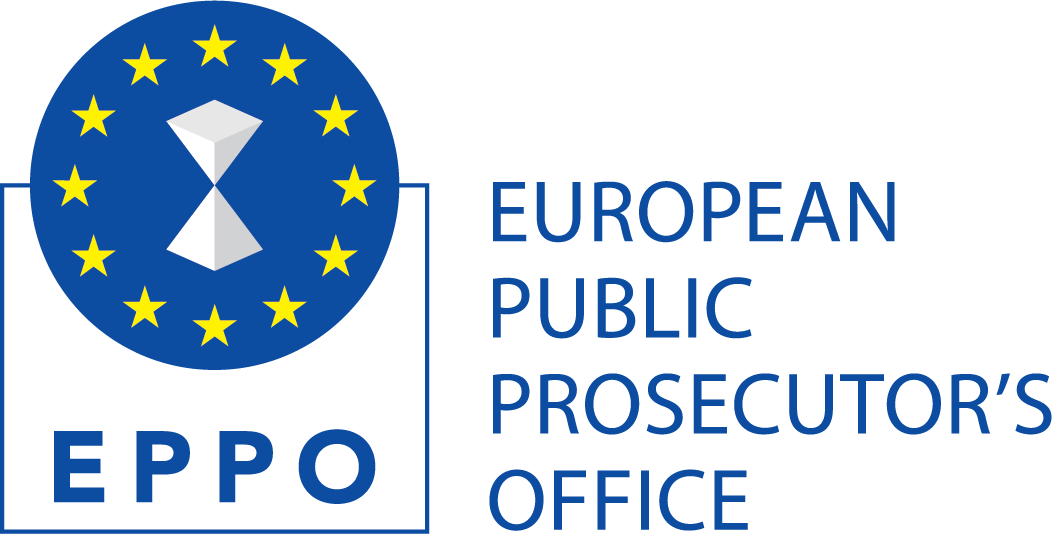
by John McCarthy Consulting Ltd. | Sep 13, 2021 | Blog, News
Recently while researching material for one of my anti-money laundering (AML) training courses, I came across the 5 page anti-corruption policy of Tesla, the electric car company. It states in bold print…. ‘Boiled down to its essence, our policy is: Don’t offer any bribe to anybody, anytime, for any reason.’
Tesla’s brief and to the point anti-bribery policy explains, “Involvement in bribery or corruption can result in lasting damage to our brand and our reputation. It can also result in multi-million-dollar fines and penalties, plus jail time for participants.”
The message is loud and clear. If any business wants to remain respectable and maintain its reputation it needs to communicate this to its employees and associated third parties. It’s much more effective than merely saying… “we don’t do corruption because I said so”.
Money laundering is often stage two of a crime or series of crimes that have already occurred e.g., the bribe has been given/accepted and now needs to be ‘concealed’ – ‘concealment’ being a key feature in AML cases.
Other reasons why money laundering, bribery and corruption are bad ideas include:
- Bribe takers/payers become hostages to fortune – they are always at risk of being pressured into taking/making more bribes. Once is never enough.
- Often, bribes are paid through intermediaries who can become blackmailers.
- Bribes will usually lead to the accounting records of the entity being falsely prepared to help hide the original illegal act, leading to a wider range of offences including indictable offence reporting to the ODCE where an audit client is involved. They go into the books as something else — consultancy fees, motor expenses, transport costs, commissions etc.
- Bribery leads to greed. Demands for bribes can be very “fluid.” Once the payer reveals a weakness in being open to giving a bribe, the bribe taker’s appetite for more becomes unquenchable.
- The risk of fraud is multiplied. Where intermediaries are involved, they may say the bribe is for €5,000, but how can the bribe payer know for sure?
- Bribery often triggers other criminal activity which ensnares those involved. People often fall into the intellectual trap that says “I deserve this, it’s so small, it’s just this time”
- While bribes can help a company enjoy short-lived success, in the end it leads to misery.
See the World Misery Index produced by Johns Hopkins University Professor Steve Hanke. The index assumes that higher unemployment and worsening inflation create economic and social costs for a country leading to more crime. The index is built using the sum of the country’s interest, inflation, and unemployment rates, minus the year-on-year percentage change in per-capita GDP growth.
In the latest version of this index from 2020, with 156 countries included, Venezuela comes out as the most miserable country in the world and Ireland at 135th, is much less miserable than the US (109) and the UK (87).
For more blogs please visit this link and for our publications and manuals and services click here.

by John McCarthy Consulting Ltd. | Aug 30, 2021 | Blog, News
The term money mule refers to the transfer of illegally obtained funds between bank accounts on behalf of others. According to a recent report by FraudSMART in the first 6 months of 2021 alone, over 700 ‘money mule’ transactions totalling €5 million moved through several bank accounts.
The majority of these cases involved accounts belonging to 18–24 year olds who are assisting in committing money laundering, which carries a maximum 14 year prison sentence. The Garda have appealed to young people and their parents to be aware of the serious and long reaching consequences of money muling.
The FraudSMART report details what to look out for in potential money muling recruitment scams with social media being the main platform for recruiting young people who are being targeted more than ever. Unsolicited texts or emails with the promise of “easy money” are commonplace and the Garda and FraudSMART are appealing to people to familiarise themselves with the red flags to look out for.
FraudSMART is the fraud awareness initiative led by the Banking & Payments Federation Ireland (BPFI) and is supported by An Garda Síochana Crime Bureau who have more details on money muling on their website here.
For more blogs please visit this link and for our publications and manuals and services click here.

by John McCarthy Consulting Ltd. | Jul 5, 2021 | Blog, News
A recent article by the Independent revealed that a Rathfarnham family home address had been used in the registration of over 100 companies. See the full article here.
The article reports that two tenants resident at the address, had use the owner’s address without his knowledge. This highlights a major weakness in the CRO’s procedures for company set up where the trust placed in the ‘self-declaration’ process has been found wanting.
The Office of the Director of Corporate Enforcement (ODCE) and An Garda Siochana were contacted by the homeowner.
A spokesperson for the Department of Enterprise Trade and Employment which oversees the CRO confirmed that the CRO does not verify the identities of directors or secretaries of companies.
This latest development calls into question the serious lack of background verification carried out by the CRO which ensures that the Office never calls into question instances where multiple addresses are listed for the same director, not to mention the increased risk that these businesses could be used for money laundering activity.
A similar problem exists at UK Companies House where a consultation has been carried out called the ‘Corporate transparency and register reform’. Proposals include making companies using the FRS 105/102 accounts frameworks in the UK, declare their turnover, among other recommendations, to help verify that they genuinely qualify for these much reduced disclosure regimes. The results of the consultation have not yet been announced, but similar moves be follow in Ireland.
For more about accountants’ AML compliance obligations, see our AML Policies, Controls & Procedures Manual for 2021.
The Manual contains all the latest requirements relevant to accountants contained in the Criminal Justice (Money Laundering and Terrorist Financing) Acts 2010 to 2021 now fully in force. Future blogs will look at various parts of the new and existing provisions of this legislation.
For more blogs please visit this link and for our publications and manuals and services click here.

by John McCarthy Consulting Ltd. | Jun 28, 2021 | Blog, News
The European Union has for some time, been trying to work out how best to combat financial crime that impacts EU finances.
Formally launched on 1 June this year, a new office, the European Public Prosecutor’s Office (EPPO) has been created. It was first established in 2017 with powers to investigate and prosecute crimes against the EU’s financial interests including money laundering.
The mandate of the EPPO’s is ‘to investigate, prosecute and bring to court crimes against EU budgets, such as fraud, corruption or serious cross-border VAT fraud’.
The EPPO’s Chief Prosecutor is Laura Codruța Kövesi, the former Chief Prosecutor of Romania’s National Anticorruption Directorate and former Romanian Prosecutor General.
Here is an interview with the new Chief Prosecutor.
The remaining EPPO staff consists of two Chief Deputies and other prosecutors drawn from the 22 participating EU countries. Unfortunately, Ireland is not participating in the EPPO along with Denmark, Hungary, Poland and Sweden. Sweden is said to join in 2022. Ireland have, however, signed up to the PIF Directive (2017/1371) which protects against the misuse of EU funds, and protecting EU taxpayer’s money. Ireland have the option to join the EPPO at any time.
The EPPO already faces a mountain of work, with over 3,000 reports submitted for action. According to Kövesi, the first new reports of alleged fraud against the EU budget, were submitted from Italy and Germany and arrived within hours of the EPPO’s online reporting system going ‘live.’ We wish Laura and her team success in the fight against financial crime.
For more about accountants’ AML compliance obligations, see our AML Policies, Controls & Procedures Manual for 2021.
The Manual contains all the latest requirements relevant to accountants contained in the Criminal Justice (Money Laundering and Terrorist Financing) Acts 2010 to 2021 now fully in force. Future blogs will look at various parts of the new and existing provisions of this legislation.
For more blogs please visit this link and for our publications and manuals and services click here.

by John McCarthy Consulting Ltd. | Jun 11, 2021 | Blog, News
In a May 2021 report by Transparency International (TI) called ‘Access Denied? Availability and Accessibility of Beneficial Ownership Data in The European Union’ the authors explain how the great majority of countries across the European Union (24 out of 27) have a private central beneficial ownership information register in place. The three that do not are Italy, Hungary and Lithuania.
Access to the registers varies a lot across Member states and while some charge an access fee, others charge a fee, the most expensive being Sweden at €27 per request.
In Denmark, one may check all the companies on the register with the same beneficial owner as well as all companies registered at a given address. It is also possible to search by company (exact name or parts of the name) and by beneficial owner.
It’s a pity that the UK is excluded from the report’s findings which, only deal with EU Member states. Nevertheless it’s a very useful tool to help MLROs track beneficial ownership data of their clients.
The report is free of charge and may be accessed here.
For more about accountants’ AML compliance obligations, see our AML Policies, Controls & Procedures Manual for 2021.
The Manual contains all the latest requirements relevant to accountants contained in the Criminal Justice (Money Laundering and Terrorist Financing) Acts 2010 to 2021 now fully in force. Future blogs will look at various parts of the new and existing provisions of this legislation.
For more blogs please visit this link and for our publications and manuals and services click here.










